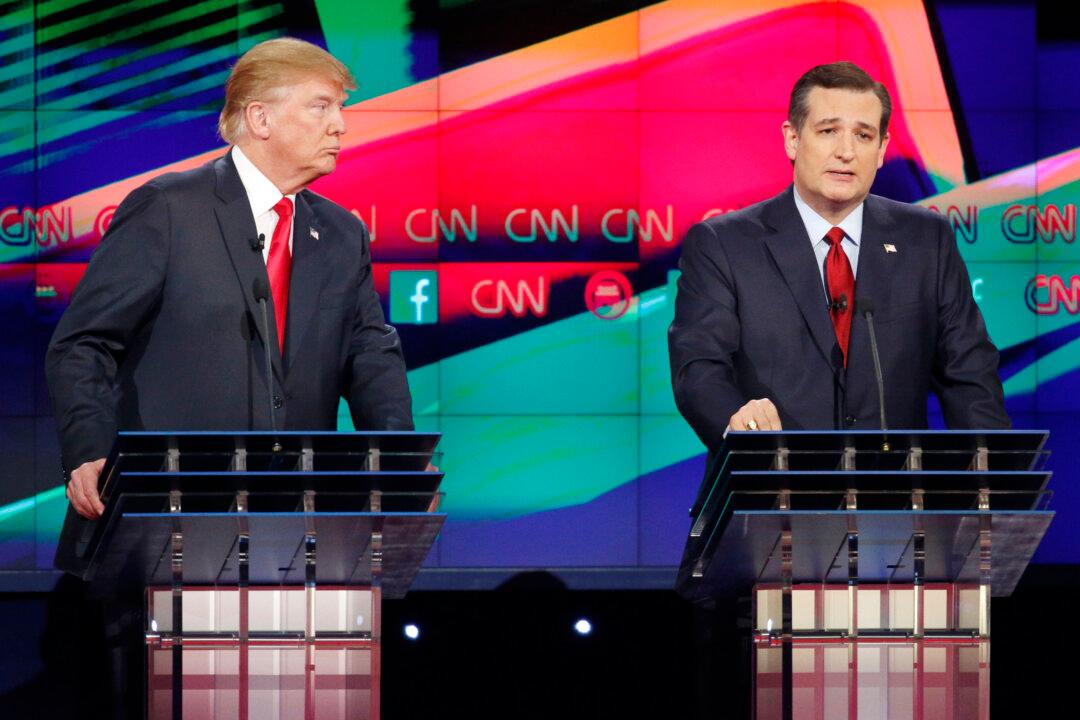WASHINGTON—A smaller cast of Republican presidential candidates returns to the main debate stage Thursday night, one of the last high-profile opportunities for the White House hopefuls to sway voters before the Feb. 1 Iowa caucus.
The prime-time showdown in South Carolina will highlight a race that has cleaved into two distinct — and increasingly heated — contests.
After months of civility toward rival Ted Cruz, front-runner Donald Trump is aggressively targeting the Texan, positing that the Canadian-born senator may be ineligible to be president.
Cruz has “a little problem,” Trump told a crowd in Pensacola, Florida, Wednesday night. “I’m sure they'll get into it tomorrow night.”
Cruz dismisses that claim and is returning the fire, accusing the brash businessman of having “New York values” and questioning his foreign policy credentials.
Four other candidates are fighting to become the more mainstream Republican alternative to the pair of anti-Washington candidates leading the field. Florida Sen. Marco Rubio is seen by some as having a slim edge, opening him up to a torrent of criticism from his rivals about his voting record in the Senate and his immigration policy, as well as the 44-year-old’s youth and relative inexperience.
The Republican divide has given definition to a race that has been otherwise unwieldy and chaotic. Trump’s stranglehold on the lead has confounded many of his rivals and forced party leaders to grapple with the prospect of him eventually becoming the GOP nominee.





